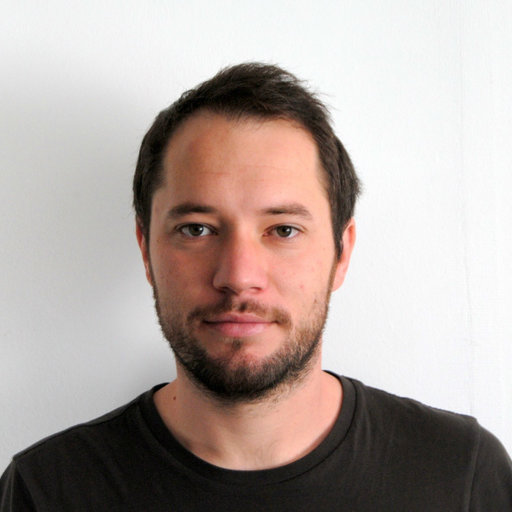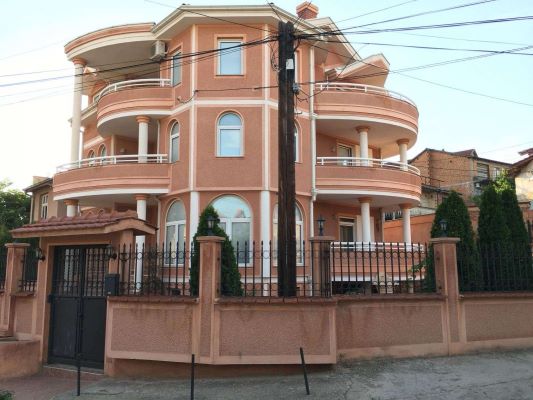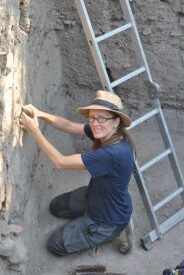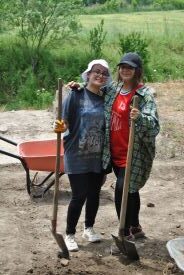2025 North Macedonia Amzabegovo:
Neolithic Immigration/integration in the Balkans
Open
Jul 5-26, 2025
Archaeology
Dr. Darko Stojanovski
$4,300
Apr 4, 2025
June 7, 2025, at 9:00am Pacific Time
6 Semester Credit Units
OVERVIEW
During the 7th millennium BCE, the Balkan Peninsula served as a gateway for the spread of farming, animal husbandry, and Neolithisation from Anatolia and the Near East to Europe. The central Balkan River valleys, including the Vardar and Bregalnica, were among the most significant migration routes during this period. Amzabegovo, situated between these two river basins, encapsulates nearly two millennia of Balkan Neolithic development. The site was occupied 6,300 to 4,800 BCE, encompassing the era from the arrival of the first farmer settlers to the advent of metallurgy. Amzabegovo features a sequence of over 20 construction phases, including residential structures, pits, public buildings and burials. The site was abandoned at the end of the Neolithic until the Roman era, when a Roman villa was built on its top, sealing and preserving the Neolithic layers.
Research at Amzabegovo begun in the late 1960’s. The site is over 10 hectares in size and represents the full duration and development of the Neolithic in the Balkan Peninsula. The emblematic, white-painted Neolithic pottery was widely represented at Amzabegovo, and is a cultural marker of the Central Balkans Neolithic population. At the same time, the material culture includes some Near Eastern elements, including architecture patterns originating in the Near East and the use of marble for personal ornaments production. After a 50-year hiatus, field research was reinitiated at Amzabegovo. The current project, which this field school is part of, focuses on understanding the Neolithic transition to sedentary living, associated with the first adaptation of farming practices. A key question is understanding the regional dynamics and the role of Amzabegovo as the largest settlement in the cluster of sites within the Bregalnica River Basin, as well as its relationship and relevance to long distance trade routes.
Instructors
All field school directors are experts in their field and passionate about their work. To discuss the suitability of this program for your career goals – whether within or outside academia – you are invited to contact the directors directly. For a broader discussion which CFS program to choose, you are welcome to contact our staff directly – you can do that through our “Contact Us” page.

Dr. Darko Stojanovski
Austrian Archaeological Institute
Testimonials
This is a new CFS program. No student evaluations are available.
student fees (tuition)
what is covered
-
DEPOSIT IS PART OF TOTAL TUITION COST
-
Costs of Instruction
-
Room & Board
-
Cost of Academic Credit Units
-
Cost of Health & Liability Insurance
read before you pay
- Application: You must apply online for this program – application is free
- Deposit: A $300 nonrefundable deposit (part of the total tuition cost) is required to secure a space in the program
- Credit Card Fee: Payments with credits cards incur 2.5% processing fee
- Late Fee: A $100 Late Fee will be added to the program costs if tuition is not paid in full by payment deadline
- Cancelation Policy: Carefully read our Cancelation Policy before committing to attend our programs
- Trip cancellation Insurance: Trip cancellation insurance is not provided by CFS. Such policies have changed due to Covid 19. If you wish to purchase an insurance policy that covers pandemic contingencies, explore Cancel for Any Reason (CFAR) plans. Insuremytrip or Travel Guard are possible websites where you may explore different insurance policies
Accommodations

Students will stay at Danilov Guest House, located in the center of Shtip. The guest house offers double rooms (twin beds) with shared toilets and showers for each floor. Wi-Fi, a washing machine, and basic leisure and exercising equipment are provided. Bed linens and towels are provided. Single room accommodation is available upon request for an additional fee. The guest house is conveniently situated within walking distance to local stores, restaurants and other amenities.
diet

This program provides three meals per day, featuring organic Macedonian homemade food. During workdays, all meals are typically served at a nearby restaurant. Meals on weekends are also held at the same restaurant, except for lunches provided during excursions. This field school can accommodate vegetarians, vegans, and individuals with lactose intolerance.
travel information
We suggest you hold purchasing airline tickets until six (6) weeks before the program begins. Natural disasters, political changes, weather conditions & a range of other factors may require the cancelation this field school. CFS typically makes a final Go/No Go decision about six weeks before the field school begins. To protect students from potential financial loss, we urge students to purchase airline tickets only six weeks prior to program beginning.
The meeting point is at the lobby of the Danilov Guest House, located in the center of Shtip, North Macedonia. Students should arrive to the guest house on the first day of program (Saturday) by 7:00pm. There are regular buses between Skopje International Airport (SKP) and Shtip, with ticket prices ranging from approximately $6-$8. A taxi from Skopje Airport to Shtip costs around $70. The program team will assist in coordinating among participants who wish to share a taxi.
visa information

There are no visa requirements for U.S. citizen travelling to North Macedonia, if they do not stay longer than 3 months. Passport’s expiration date should exceed the stay by at least 3 months.
Citizens of other countries are asked to check the North Macedonia embassy website page at their home country for specific visa requirements.
Meeting Point
| Date | Time | Location |
|---|---|---|
| July 5, 2025 | 7:00pm | Lobby of the Danilov Guest House |
Safety
Our primary concern is with education. Traveling and conducting field work involves risk. Students interested in participating in our programs must weigh whether the potential risk is worth the value of education provided. While risk is inherent in everything we do, we do not take risk lightly. We engage in intensive review of each field school location prior to approval. Once a program is accepted, we review and monitor each program annually to make sure it complies with all our standards and policies, including student safety.
Students attending our international programs are covered by a comprehensive Health Insurance policy that includes physical illness or injury, mental or chronic conditions. There are no deductible and 100% of costs are covered up to $250,000. In addition, we provide Political & Natural Disaster Evacuation policy, which allow us to remove students from program location if conditions change.
Students attending our domestic programs (within the US) must have their own health insurance and provide proof upon enrollment. Program directors are familiar with local authorities and if in need of evacuation, local emergency services and/or law enforcement will be notified and activated.
We have an explicit and robust harassments & discriminations policies. If students feel they cannot discuss personal safety issues with program staff, they are welcome to call the CFS emergency hotline and talk directly with CFS staff members.
Call (+1 562 584-0761) or email (info@fieldsciences.org) if you have questions about the safety of any program.








